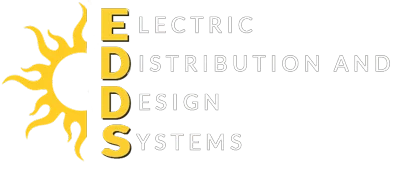Everyone’s talking about solar panels, all across the globe, making them an instant hit. Not only do they help save energy, but they also help save money. The popularity is not without reason though; it worked out for one person, who then passed it on to various allies, making it an ideal catch for the neighborhood.
With popularity comes confusion. Which type of panel should be installed? Which is the best solar panel possible? Is it better to get Grid-tied vs. off-grid solar systems? It definitely sounds like a task, doesn’t it? So much to choose from! However, It is quite easy to make up your mind about this, as we have this guide specially designed for you!
Take things one step at a time and learn with us, what goes into the process. You can prepare for the future and make the right decision for your home.
In this guide, we’ll explore how you can make the best choice and get yourself the perfect solar panel as per your needs!
So, if you’re eager to learn more about installing solar panels yourself, let’s dive in!
Key Differences Between Grid-Tied and Off-Grid Solar Systems
Like various home appliances and home renovation items, solar panels also come in a variety to choose from. It is important to know what types of solar panels are out there so you can make the best choice for your home.
- Grid-Tied Solar Systems:
Grid-tied solar systems are connected to the public electricity grid, allowing users to send excess power back for credit. This process is typically facilitated through net metering, where the utility company tracks the energy sent to and drawn from the grid.
This allows homeowners to be at an advantage as they can reduce their electricity bills. They can receive credits for the surplus energy their solar panels generate during peak sunlight hours. Grid-tied systems provide greater energy reliability by offering a backup when solar production is low, as they can draw power from the grid when needed.
- Off-Grid Systems:
Off-grid systems, however, are independent and rely on battery storage and solar panels to generate and store energy. Off-grid systems require batteries (such as lithium-ion or lead-acid) to store excess energy for later use. Properly sized batteries are essential to ensure a steady supply of electricity during periods of low solar production.
Energy Independence: The Appeal of Off-Grid Solar Systems
Off-grid systems are generally more attractive as options as they offer independent energy sources. They help provide users with the ability to generate, store, and manage their own electricity. Now that’s quite a catch! Who wouldn’t want that?
However, this is best applicable in rural or remote areas, where access to the public grid is limited. Off-grid systems allow homeowners to live more sustainably without relying on utility companies.
Pros and Cons of Grid-Tied Solar Systems
When it comes to grid-tied systems and off-grid systems, there are significant differences. Grid-tied systems usually cost less as they do not require expensive battery usage. This helps the cost quite a lot, making it easier to manage your expenses.
To choose a few cons, a grid-tied system still relies on the public electricity grid. It is highly likely that the system to stop working and power to go out in case of a power outage. This leaves people without backup power, which can only be avoided if an extra backup battery is there. Moreover, grid-tied systems reduce electricity bills, but they do not eliminate them. If your solar system doesn’t produce enough energy to meet your needs, you will still need to purchase power from the utility company.
Pros and Cons of Off-Grid Solar Systems
Off-grid solar systems are ideal for people living in remote areas, as according to the name, they are not dependent on the main grid. Due to their energy independence, they are quite an ideal choice! An off-grid system helps in providing reliability, especially during power outages.
However, to discuss a few cons, they require a substantial investment in batteries for energy storage. This makes it an expensive system, as not just the batteries, but the setup is also quite a hassle and cannot be done without a professional. So if you’re considering solar panels to save money, this is not your friend.
Cost Considerations: Grid-Tied vs. Off-Grid Systems
When it comes to price, off-grid is generally affordable, as the only additional cost is an extra backup power. Off-grid systems can cost a lot because they are completely dependent on backup batteries. It’s important to know that your backup plans should be solid, and you shouldn’t compromise on cost due to what you read on the internet. A lot poeple tend to find that a little annoying, but in the long run it is definitely the easiest thing to do. However, to each his own. You shouldn’t worry and just connect with a professional and get to work!
Which System is Right for You? Factors to Consider
When choosing between grid-tied and off-grid systems, factors like location, energy consumption, and budget play a critical role. If you’re in an area with reliable grid access and want to reduce electricity costs, a grid-tied system is ideal. However, off-grid systems may be more suitable for remote locations requiring self-sufficiency.
As solar panels are long-term investments, we highly recommend that you get a professional to help you sort out the pricing. It is highly unlikely to get a good recommendation from friends and family, as only a professional can determine what is best for you, as per your needs and house.
At Electric Distribution and Design Systems , we have the solution to every solar panel reated problem you might have. Rest assured and just give us a call. From installation to choosing the right panel, to maintenance, we’ll handle everything for you, as we’re always here to solve matters in the best possible ways!
